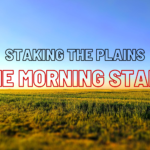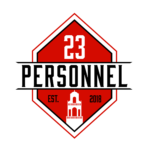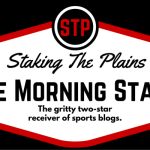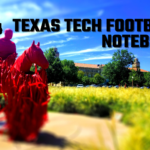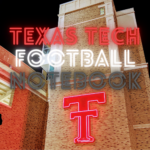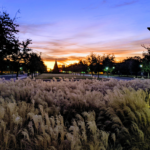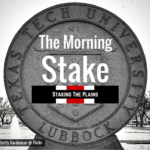It usually wasn’t too crowded in the mornings so I’d grab an empty seat near the back. We rode bus #3, which I always assumed to be a sign of good luck. The hard, dark green seats were unforgiving, but the ride into New Deal wasn’t too long and I’d often pass the time by watching the long rows of cotton outside my window as we roared past. With a little imagination the passing of the rows looked like a giant’s legs, running alongside the old yellow school bus.
Lubbock’s nickname as the “Hub City,” is fitting in so many ways. It’s out on a island, all by itself; not quite in the Panhandle and just a bit too far north to claim the riches of the Permian Basin. Most say it’s in West Texas, which has to be confusing to any outsider that sees it on a map. West of what, exactly? You can’t get there on the interstate. In fact, there aren’t many easy routes in.
It’s also hub to the farming communities that surround the city. Idalou, Shallowater, New Deal, Crosbyton, Ropesville and countless other tiny towns, circling Lubbock in static orbit. And all of those school buses are still barreling down farm to market roads or caliche, carrying kids to and from school; kids like me that might be daydreaming about giants running alongside them in the cotton fields that bind them together.
——
We don’t get back to Lubbock nearly enough, so I’m always giddy when we find the time to make the trek. It’s a slow-build of anticipation as the horizon flattens and the trees become sparse. And I suppose for those more sane, the change in scenery would be less than ideal. But for those of us that grew up in the wide open space, it will always be worth the drive.
I’ve been away for 17 years so it’s hard to say that Lubbock is still home. But there will always be something special about the town for me. And even though the layout is evolving, it’s hard to drive past any street corner or section of land that doesn’t evoke some sort of memory, good or bad–formative or fleeting.
They say you can never really go home, and there is definite truth to that. We couldn’t move back and expect the utopia that we briefly experience while there one or two weekends a year. The giddy would wear off, replaced by the standard frustrations and headaches of everyday life. But Lubbock, in pieces–in short spurts–is hard to match.
——
There is a glorious convergence of rigid conservatism and artistic genius that courses through the veins of the city. The same place that only recently began allowing alcohol sales is also the birthplace of musical talents ranging from Buddy Holly to Natalie Maines. Lubbock native and singer/songwriter Butch Hancock explained the juxtaposition of ideas succinctly when he said, “Life in Lubbock taught me two things: One is that God loves you and you’re going to burn in hell. The other is that sex is the most awful, filthy thing on earth, and you should save it for someone you love.”
Trying to explain the clash of cultures against the backdrop of such a seemingly barren canvas to those not familiar with the South Plains is difficult to do. The city’s traditional foundation is weakened from a constant barrage of sledgehammer swings from talented natives that the city would love to claim as its own. But that’s what makes it so interesting–the underlying tension that few can see and understand is always there, simmering. You’ll never feel safer than when you’re in Lubbock, but you can also hear the devils whispering in the wind if you listen closely enough.
Through it all, there is beauty in the emptiness, in the simplicity of Lubbock. Singer/songwriter Joe Ely described it to Texas Monthly in 2000. “Every time I go back, there’s something about that whole area that seems to want to turn into a song. There’s something musical about that emptiness. I can’t ever drive up there without music coming into my head. It helps fill up the space.”
And I fall somewhere smackdab in the middle of all the above. There’s a freeing feeling to it all; the openness, the blank canvas, the promise of “we’re fixin’ to do something pretty big just as soon as I finish this beer.”
Lubbock to me means getting to see old friends and family, every time we go back. It’s Texas Tech football in good times and bad. It’s miniature donkeys and hubcap pork chops and a guy named Jack that lives in my buddy Clint’s garage. It’s the veterans of bus #3, getting older and greyer but watching our kids playing the same games that we did so many years ago–kids that I held in the hospital on the day they were born. It’s listening to Stoney Larue sing Empty Glass over and over and over again. It’s show pigs and fractured ribs and dozens of stories I could never write about because no one would believe them to be true. It’s country folks, the best kind of country folks, wearing FFA gear or a Double-T or a combination of both, enjoying our all-too-brief time together, dancing on the patio.
And it’s looking up at millions of stars in that wide open space and remembering the past, and saying a prayer for the future.
——
We left Lubbock on Monday morning, just before a dust storm blew in. I’m always a bit sad on the way back so the first few hours of the drive are usually pretty quiet. But on Monday, driving south, I asked my six year-old son, Cade, if he could see the giant in the rows. “Yes! He’s running with us, daddy!” So we watched him in the cotton fields, running alongside us until he wasn’t there anymore, until the fields were gone.

